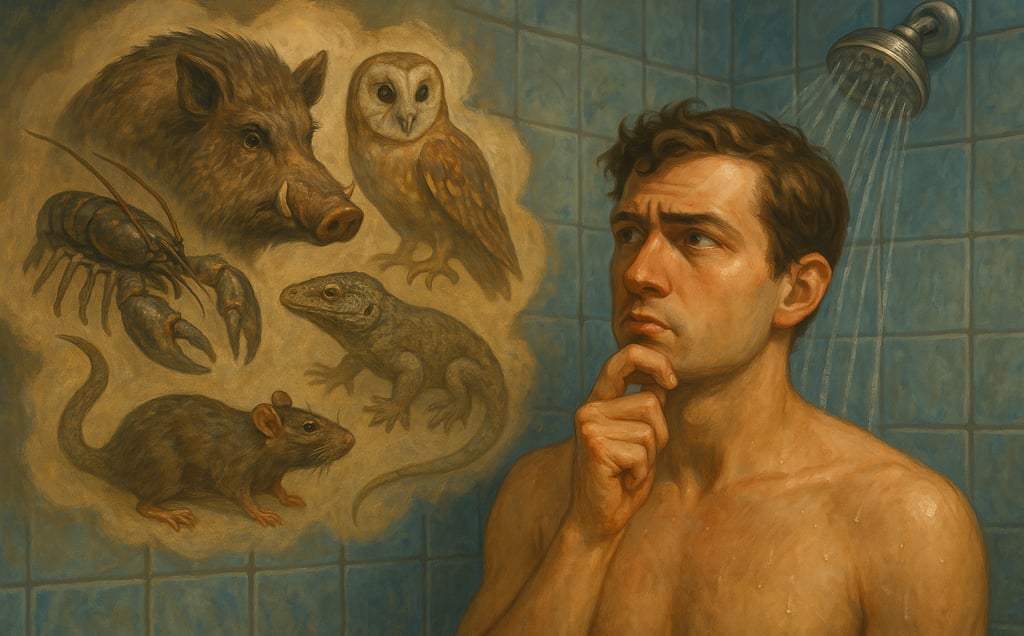Unclean by Design? A Showerthought on Leviticus 11
Why would a loving God create animals only to declare them "unclean"? In this Showerthought, I take a closer look at Leviticus 11 and ask what it means for a supposedly perfect creation to include creatures labeled as abominations. A curious dive into ancient purity laws, divine design, and the contradictions they raise.
SHOWERTHOUGHTS
Oliver
4/12/20251 min read


Sometimes I wonder if the God of Leviticus was just having a bad day at the zoo.
Leviticus 11 reads like a divine field guide crossed with a blacklist: some animals are “clean,” and others are “unclean,” “detestable,” even “abominations.” Don’t touch them. Don’t eat them. Don’t even become unclean like them.
But here’s the thought that bubbles up in the shower: if God created all the animals in Genesis and called them “good,” why are some of those same creatures later labeled disgusting? Why would a perfect creator make things that are loathsome by design?
It’s not like these animals turned evil. They didn’t eat the forbidden fruit or build a golden calf. They just... exist. Pigs, owls, lizards, and shellfish — creatures that fill ecosystems, feed people, and (let’s be honest) taste amazing. Yet they get categorized as moral hazards. Not because of what they do, but because of what they are.
Was this a way of reinforcing cultural identity through dietary rules? A public health system disguised as theology? Or are we seeing a glimpse of an evolving theology, where earlier texts project more tribal, boundary-focused ideas about purity and holiness?
And what does it say about the nature of a supposedly loving God, if part of creation is treated as inherently unworthy — by divine command?
Okay, full disclosure — this wasn’t exactly a literal showerthought. But it fits the category. Sometimes I flip back through old notebooks I used to scribble in while waking up from the fog of cult life, and I found a note that just said “Leviticus 11 animal abominations.” That was enough to get the wheels turning again.
